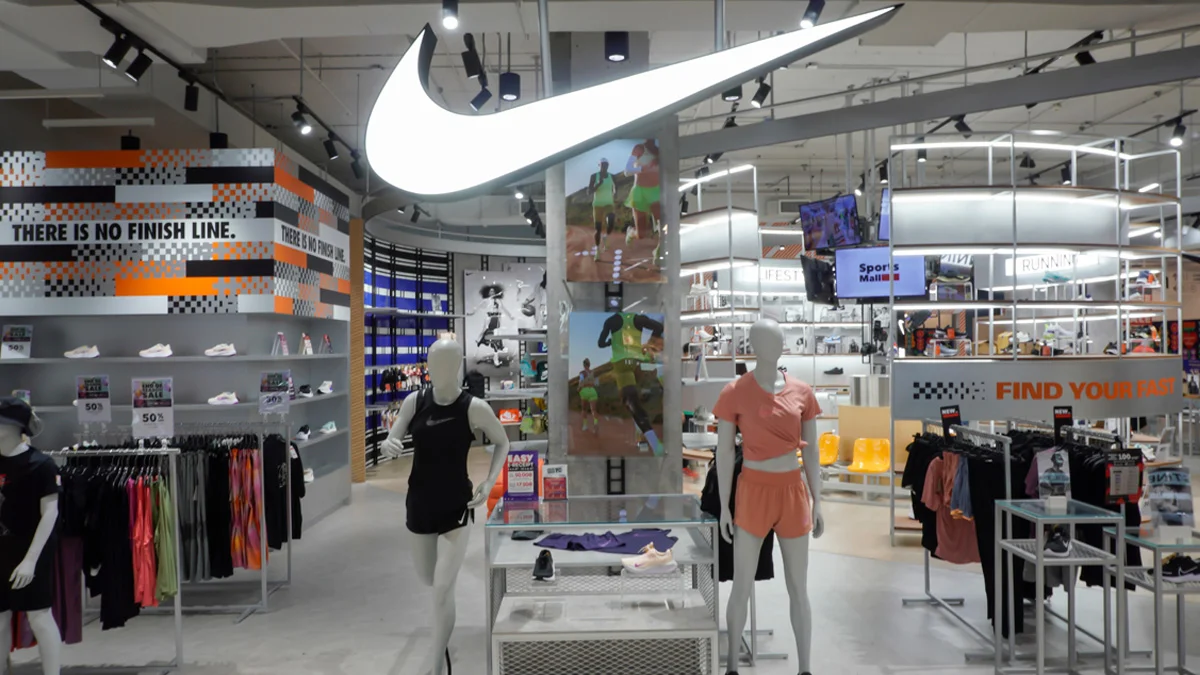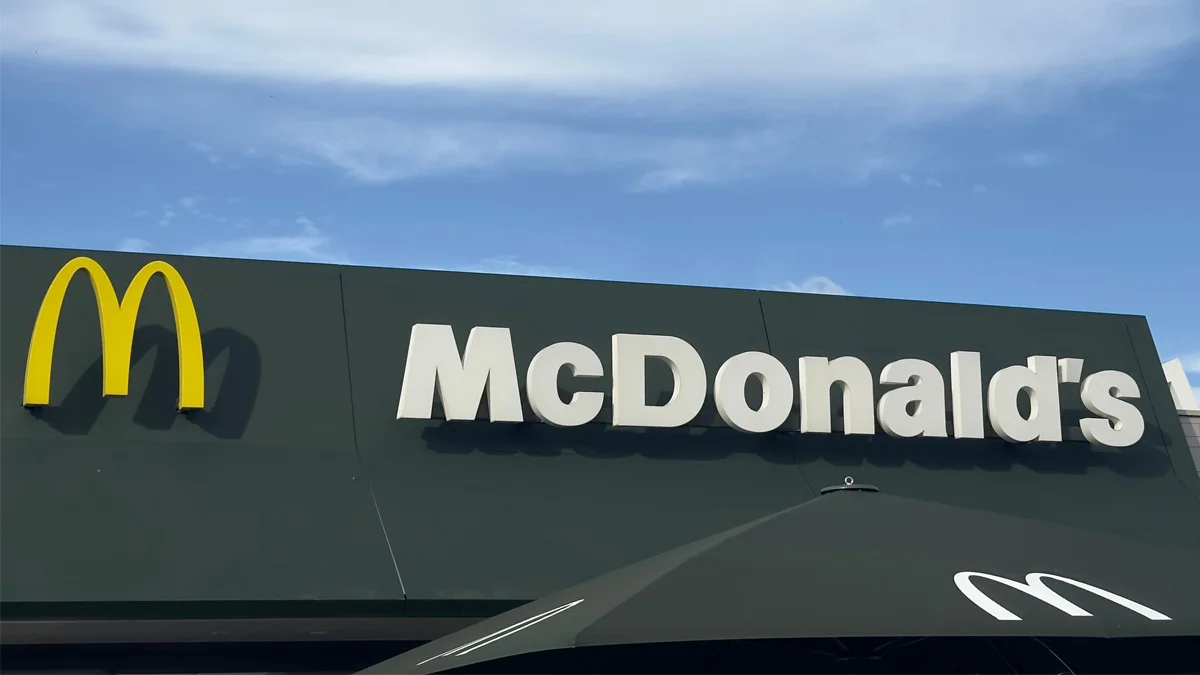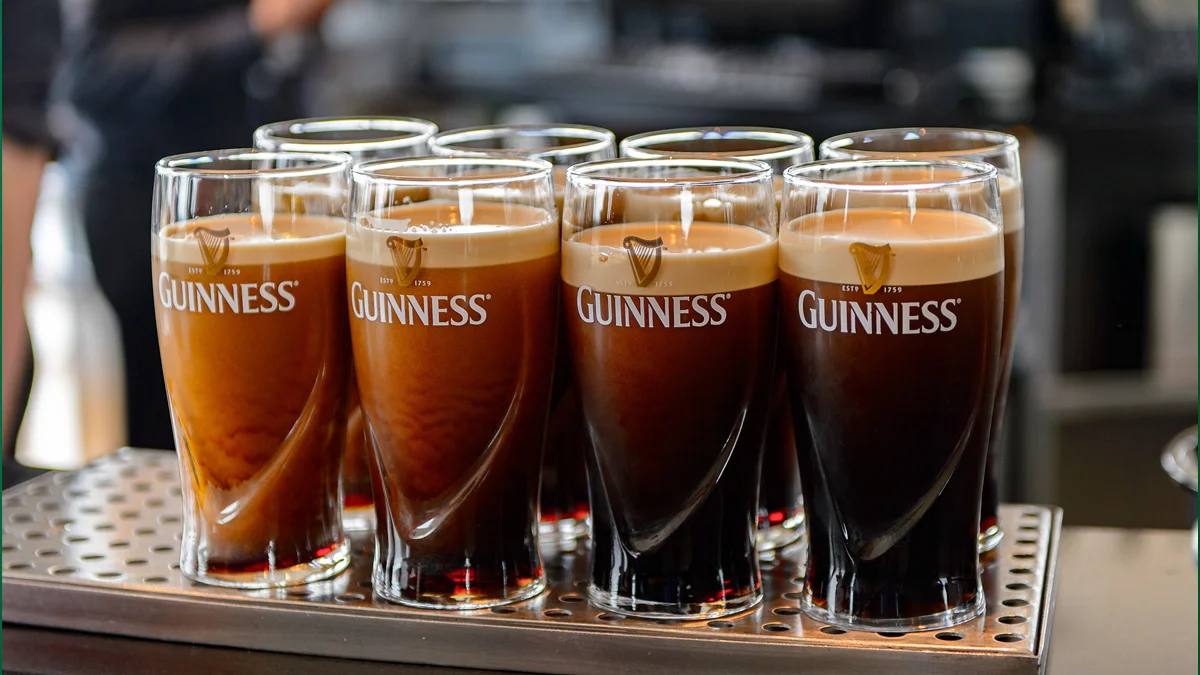
McDonald’s, Nike, Starbucks, Diageo. Some of the biggest consumer businesses in the world are warning of falling sales.
McDonald’s sales in the second quarter of 2024 were down 1 per cent year-on-year in restaurants that have been open for at least a year. That is the first time that McDonald’s has warned of falling sales in four years.
Meanwhile, Nike’s quarterly sales were down 2 per cent compared to last year and Starbucks reported that same-store sales were down 3 per cent. And at Diageo, the UK drinks maker behind Johnnie Walker, Guinness and a host of other brands, annual net sales were down 1.4 per cent. Its share price fell another 5 per cent on the back of the disappointing annual results. They are down 30 per cent over the past year.
All these businesses warned that consumers are cutting back on spending. Debra Crew, the chief executive of Diageo, described the consumer environment as “extraordinary”, saying: “You do see persistent inflation that is really weighing on consumers and weighing on their wallets.” Laxman Narasimhan, the boss of Starbucks, echoed this sentiment.
Navigating tricky consumer markets
But these brands also face a specific challenge – a struggle to get their offer, their message and their USP across to cash-conscious consumers.
They are attempting to overcome this. Starbucks cafes, which are being undercut by local coffee shops, has responded by offering more promotions to lure customers back. McDonald’s is also turning to deals in response to customers buying fewer items per visit or selecting cheaper products. In the US, it is offering a bundle of four products – a burger, fries, chicken nuggets and chips – for $5. A similar deal in the UK is priced at £3.

Chris Kempczinski, the chief executive of McDonald’s, said his business has shown in the past that it knows how to navigate tricky consumer markets. "We know how to do this. We wrote the playbook on value and we are working with our franchisees to make the necessary adjustments," he said.
Consumers in the UK, US and elsewhere have been squeezed by rising prices over the past three years, even if inflation is now easing. The price of a Big Mac burger, for example, has risen by nearly a third since 2019, according to data.
Furthermore, many households are only now feeling the impact of higher monthly repayments on their mortgage, which has been caused by the increase in interest rates. The Bank of England’s latest monetary policy report shows that around a third of mortgage accounts are still paying interest of less than 3 per cent, despite the base rate being 5 per cent. This is because of the prevalence of two-year and five-year fixed-rate deals that are yet to expire, but soon will.
Even the most consistent performers on the high street and online have warned that consumers are cautious. Next, the fashion and home retailer, said that sales in its shops were down 4.7 per cent year on year in a trading update this week that otherwise showed a strong performance overseas and online. Amazon shares tumbled after it warned that sales in the past quarter grew slower than expected.
Ian Shepherd, the retail analyst and consultant, said in his weekly newsletter Moving Tribes: “The reality is that there is quite a gulf between a set of fairly strong macro-economic indicators and the daily lived experience of consumer businesses across our high streets and retail parks. That creates the dichotomy that many retailers I speak to are experiencing where investors, taking a long-term view, are pretty excited about the sector just at the same time that achieving daily and weekly sales targets seems harder than ever.
“What does that mean for any of us running retail and consumer businesses? It will feel for a while like you are living in an odd twilight zone where the newspapers tell one story about the consumer while you are wrestling to meet your targets from day to day. Indeed, the many retailers I talk to are living this right now, with no-one having a particularly easy time trading.”
A muddled proposition
But the difficult trading conditions have also revealed the challenges facing brands that they have, until now, been able to mask. For discerning consumers seeking value and quality, the proposition from McDonald’s, Nike, Starbucks and Diageo looks more muddled than before.
Diageo has focused on premiumisation – more upmarket drinks – but many consumers who splashed on making extravagant cocktails during lockdown are now cutting back on spending. “While we see some pockets of down trading, we also see pockets of premiumisation,” Crew said.

But Diageo has struggled to keep on top of changing consumer trends, such as trading down to cheaper drinks, and has been left with unsold stock in markets including Latin America. The company says that it has “strengthened our consumer insights” in response. In the words of Alistair Osborne in a column for The Times, this means incentivising stores and bars to provide regular stock updates.
All these businesses have become more complex and drifted away from their core offer. Starbucks, for instance, has expanded well beyond coffee into cold drinks, energy drinks and food. But the complexity of its menu means Narasimhan is now having to work on speeding up service in its stores so that people who just want coffee are not left waiting.
Nike, meanwhile, has pulled back from wholesale in favour of selling directly to consumers through its own shops and website. It has also reorganised away from a team of category specialists in running, football or other sports in favour of organising products around gender or age.
Massimo Giunco, a former brand director for Nike in Europe, eviscerated the company’s strategy in a post on LinkedIn. “Consumers are not so elastic as some business leaders think or hope. And consumers are not so loyal as some business leaders think or hope,” Guinco wrote. “So, what happened? Simple. Many consumers – mainly occasional buyers – did not follow Nike (surprise, surprise) but continued shopping where they were shopping before the decision of the CEO and the president of the brand. So, once they could not find Nike sneakers in ‘their’ stores – because Nike wasn’t serving those stores any longer – they simply opted for other brands.”
On the decision to move away from category specialists, he added: “If today, we talk about lack of innovation and energy in product creation, well, we know exactly what originated all of that.”
Brian Morrisey, a digital consultant, summed up Nike’s problems in one line: “Nike is a massive company that has expanded so far beyond its roots to create internal complexity and the need to be all things to all people.”
'Don't try to do everything at once'
Howard Schultz, the founder of Starbucks and chief executive until April 2023, has been vocal in his concerns about that company. “There is a natural tendency to try to do too much too soon. Don’t try to do everything at once,” he said of the challenges facing Starbucks in a post on LinkedIn.
“Leaders must model both humility and confidence as they work to restore trust and increase performance across the organisation,” he said. “The stores require a maniacal focus on the customer experience, through the eyes of a merchant. The answer does not lie in data, but in the stores.
“Senior leaders – including board members – need to spend more time with those who wear the green apron. One of their first actions should be to reinvent the mobile ordering and payment platform, which Starbucks pioneered, to once again make it the uplifting experience it was designed to be. The go-to-market strategy needs to be overhauled and elevated with coffee-forward innovation that inspires partners and creates differentiation in the marketplace, reinforcing the company’s premium position. Through it all, focus on being experiential, not transactional.”
The shadow of Schultz still looms over Starbucks. According to a report in the Financial Times, his role as chair emeritus means he can attend and observe board meetings and still has a parking space at the company’s headquarters.
However, if Starbucks is to win back consumers, it needs to re-establish its image in the shadow of its founder. As the falling sales for at the company, as well as at Diageo, McDonald’s and Nike, customers are prepared to take their spending elsewhere.
Further reading
Ian Shepherd’s retail newsletter Moving Tribes on the difficult consumer market
Massimo Giunco’s LinkedIn post on Nike
Related and recommended

The technology is being used to redefine leadership, strategy and time management for modern bosses

Ebike entrepreneur Caroline Seton explains why start-ups should withstand external pressures to change course

Tom Crowley explains his philosophy for running successful high street food businesses

The travel tour entrepreneur’s business is thriving after the pandemic because she listened to customers

